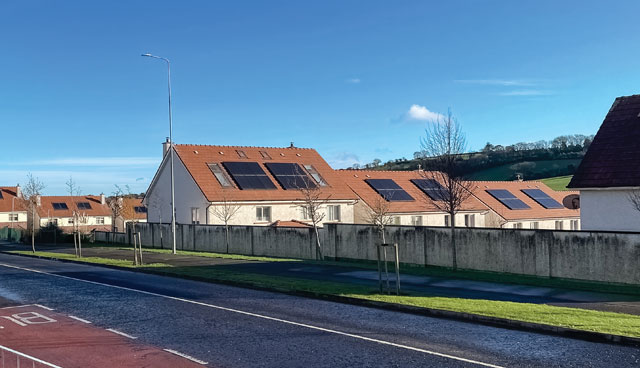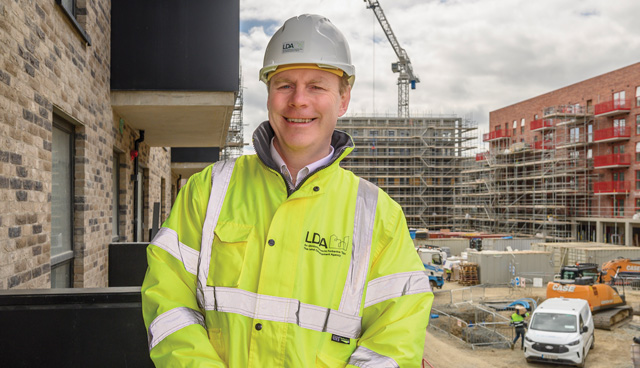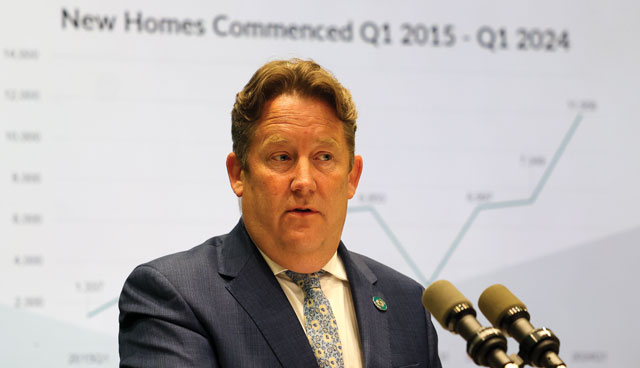
Driving future skills in sustainable construction
4th July 2024
Northern Housing Minister Gordon Lyons MLA: Housing priorities
4th July 2024What the Energy Performance of Buildings Directive means for housing

Introduction of government subsidies, integrated district approaches to developments, and eradication of energy poverty are among the requirements facing EU member states under the Energy Performance of Buildings Directive.
The revised Energy Performance of Buildings Directive, which entered into force on 28 May 2024, must be adopted by the State by 29 May 2026.
The Government is obliged, under the aegis of Article 17 of the Directive, to support compliance with minimum energy performance standards via the provision of appropriate financial measures, in particular those targeting vulnerable households, people affected by energy poverty or, where applicable, living in social housing, in accordance with Article 24 of Directive (EU) 2023/1791.
Furthermore, the State is to be tasked with providing technical assistance, including through one-stop shops with a particular focus on vulnerable households and, where applicable, people living in social housing, also in accordance with Article 24 of Directive (EU) 2023/1791.
The Directive further says that integrated district or neighbourhood approaches are necessary as they “help to increase the cost-effectiveness of the renovations required for buildings that are spatially related such as housing blocks”.
“Such approaches to renovations offer a variety of solutions at a larger scale,” the Directive states.
“Member states should encourage financial institutions to promote targeted financial products, grants and subsidies to improve the energy performance of buildings housing vulnerable households, as well as to owners in worst-performing buildings with multiple residential building units and buildings in rural areas, and other groups for whom access to financing is difficult.”
To enable this, the Directive states that the European Commission should adopt a voluntary framework to help financial institutions target and increase lending volumes in accordance with the Union’s decarbonisation ambition and relevant energy targets.
Asserting that inefficient buildings are “often linked to energy poverty and social problems”, the Directive outlines that the Renovation Wave Strategy should “leave no one behind” and seize it as “an opportunity to improve the situation of vulnerable households, and a fair transition towards climate neutrality should be ensured”. “Financial incentives and other policy measures should as a priority target vulnerable households, people affected by energy poverty and people living in social housing, and member states should take measures to prevent evictions because of renovation, such as caps on rent increases.”
In early 2024 former Green Party MEP Ciarán Cuffe, who played a key role in shaping the legislation in the European Parliament, said: “This Directive will unlock public and private money and direct it to renovations, and we have set a clear policy framework for this.
“The savings with this law will also be considerable: Guidehouse estimates that between 21 and 44 bcm of gas or €11 billion per year may be saved with the EPBD. This means significant savings for consumers and, crucially, reduced dependence on fossil imports from Russia.”






